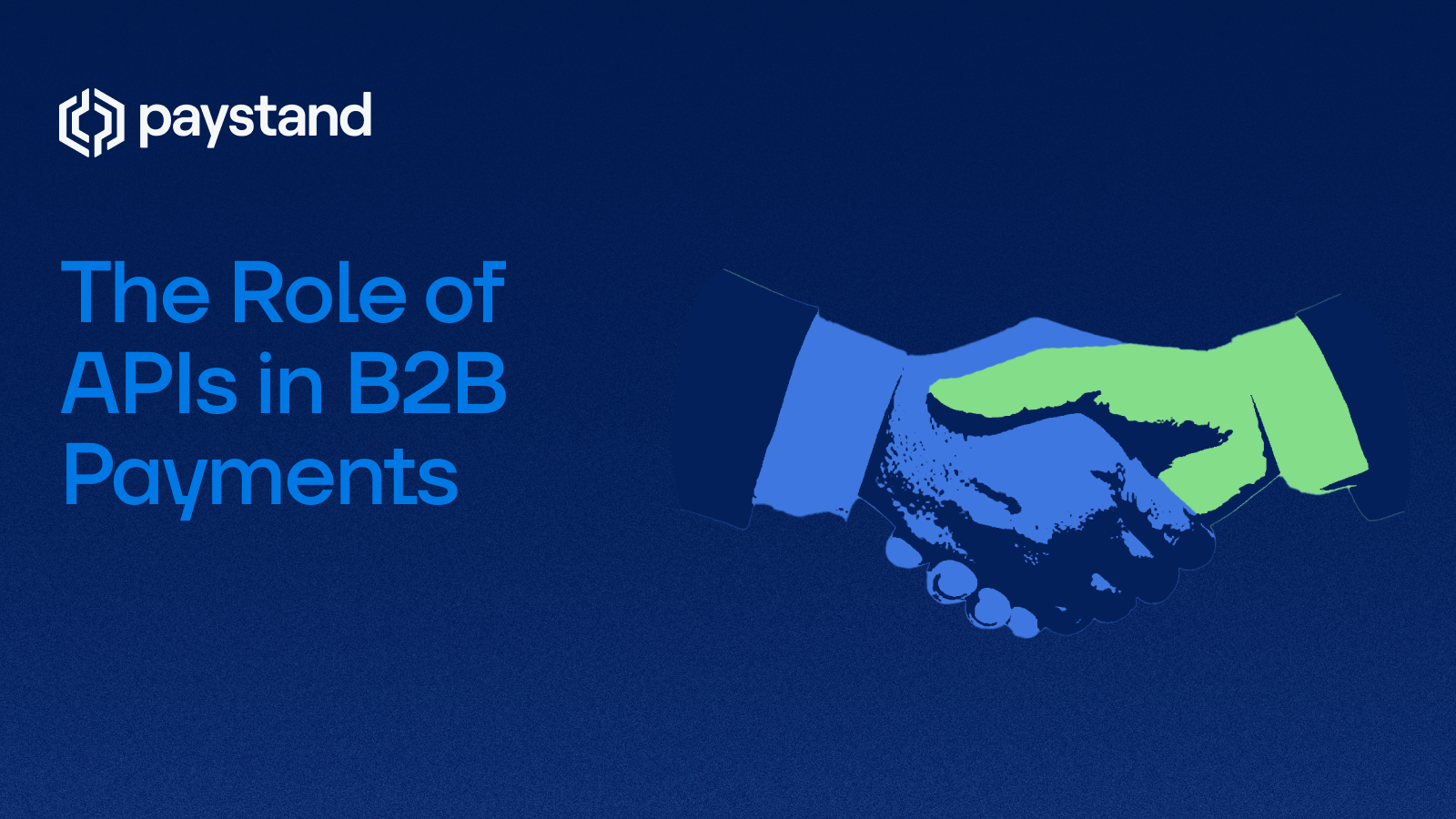The Role of APIs in B2B Payments

Table of Contents
- Introduction: Why APIs Matter in B2B Payments
- Benefits of API-Driven Commerce Platforms for B2B
- Best Messaging Solutions for B2B Order and Invoice Exchange
- Best Solutions for B2B Money Movement Across Accounts, Cards, and Wallets
- The Role of APIs in Customizing Billing Processes
- API Integration in B2B Equipment Financing
Key Takeaways
- A B2B payments API enables businesses to integrate secure, automated transactions directly into their platforms.
- API-driven commerce platforms streamline invoicing, reconciliation, and credit card processing while reducing manual errors.
- Best-in-class solutions for order and invoice exchange use APIs to automate document workflows and improve collaboration.
- APIs help manage money movement across accounts, cards, and digital wallets while maintaining compliance and transparency.
- Businesses leverage APIs to customize billing processes, automate subscriptions, and adapt pricing models.
- In industries like equipment financing, API integration simplifies approvals, disbursements, and repayment tracking.
Why APIs Matter in B2B Payments
Modern B2B payments depend on speed, accuracy, and flexibility. Businesses are moving away from manual systems and static integrations, instead relying on API calls that connect platforms, automate transactions, and enhance the customer experience.
A well-designed B2B payments API allows companies to automate everything from invoice management to cross-border money movement. It ensures payment workflows are embedded seamlessly into existing systems rather than being tacked on as an afterthought.
For companies exploring this shift, Paystand’s API offers a programmable way to automate payments and integrate digital finance operations into your core business systems.
Benefits of API-Driven Commerce Platforms for B2B
An API-driven commerce platform gives businesses greater flexibility and efficiency compared to traditional financial systems. Key benefits include:
- Automation of payment processes: Eliminating manual entry reduces errors and accelerates collections.
- Improved reconciliation: Real-time data sync helps AR teams stay ahead of reporting cycles.
- Scalable integrations: APIs connect seamlessly with ERP systems and CRMs, enhancing workflow automation.
When paired with billing and payment automation, API-driven platforms help businesses build scalable and adaptive financial ecosystems.
Which Messaging Solutions Are Considered Best in Class for B2B Order and Invoice Exchange?
In B2B commerce, efficient exchange of invoices and orders is critical. Messaging solutions powered by APIs are now the gold standard, enabling real-time data transfer across businesses.
- EDI replacements: API-driven systems outperform legacy Electronic Data Interchange by offering more flexibility.
- Secure invoice delivery: Automating exchange reduces fraud and supports compliance.
- Seamless integrations: APIs connect directly to accounting systems for invoice management and reconciliation.
For companies evaluating tools, invoice management best practices highlight the importance of APIs in streamlining documentation flows.
What Are the Best Solutions for B2B Money Movement Across Accounts, Cards, and Wallets?
B2B money movement spans more than bank transfers. Businesses need solutions that handle accounts, credit card transactions, and even digital wallets. APIs make this possible by:
- Automating bank-to-bank transfers for lower costs.
- Supporting B2B credit card processing for customers who prefer card-based payments.
- Connecting wallets and alternative rails to expand payment options.
Paystand’s B2B credit card processing solutions provide a strong example of how APIs can manage costs while maintaining flexibility.
What Role Does API Play in Customizing Billing Processes?
APIs enable companies to design billing workflows that reflect their unique business models. Common customizations include:
- Subscription billing: Automating recurring payments and renewals.
- Dynamic pricing: Adjusting invoices automatically based on contract terms.
- Custom workflows: Creating triggers based on api calls for approvals, receipts, or notifications.
By leveraging an API, companies ensure their billing system isn’t rigid. Instead, it adapts to customer expectations, improves accuracy, and streamlines compliance. Learn more about billing and payment automation and how APIs make these workflows possible.
What Is the Role of API Integration in B2B Equipment Financing?
Industries like equipment financing rely on complex workflows—loan approvals, equipment delivery, disbursements, and repayments. An API helps streamline these processes by:
- Connecting financing systems directly to ERP platforms.
- Automating disbursement and repayment schedules.
- Tracking transactions in real time for full visibility.
This is particularly valuable in the broader context of B2B payments, where transaction speed and accuracy can directly affect capital efficiency.
For a deeper dive into the future of B2B transactions, see our overview of B2B payments trends.
The shift toward API-driven B2B payments is already happening, and businesses that adopt early will gain a competitive advantage. From automating collections to streamlining reconciliation, APIs unlock a smarter way to move money.
Explore how you can modernize your systems with Paystand’s Payments API.








%20(1)%20(1).jpg?width=100&height=100&name=IMG_3752%20(1)%20(1)%20(1).jpg)